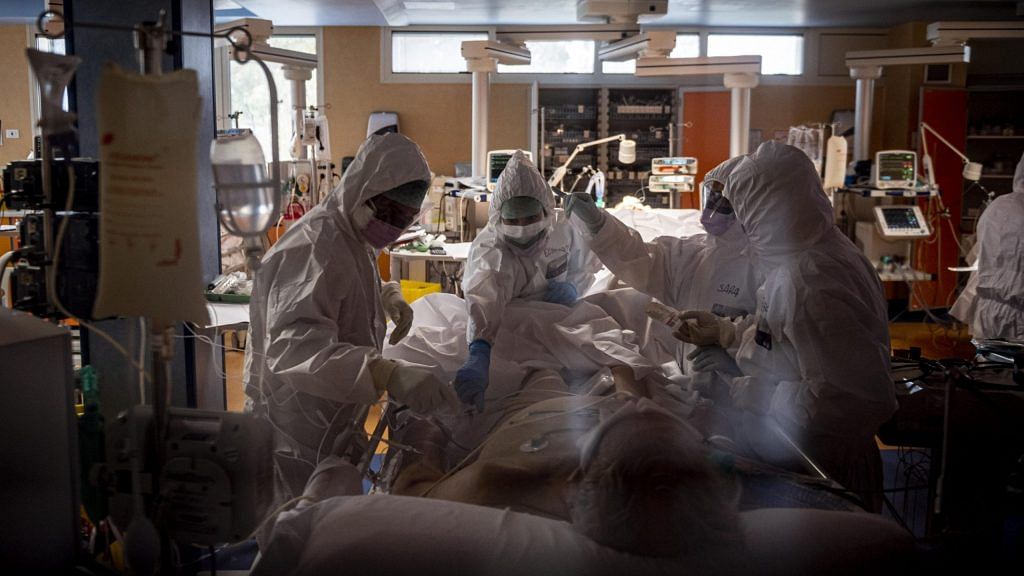New Delhi: Nearly one in every 17 people with Covid could develop anxiety, insomnia or mood disorder for the first time within 90 days of being diagnosed, a new study of US patient health records suggested.
The study published in Lancet Psychiatry journal Monday also found that existing psychiatric patients run a 65 per cent higher risk of being diagnosed with Covid-19.
This means that the association between Covid and psychiatric illnesses is bidirectional — one condition tends to promote the other.
Led by University of Oxford psychiatry professor Paul J. Harrison, the study used data from the TriNetX Analytics Network, a global network that captures anonymised data from electronic health records in 54 healthcare organisations in the US, totalling 69.8 million patients. This included 62,354 patients diagnosed with Covid between 20 January and 1 August.
“In the period between 14 and 90 days after COVID-19 diagnosis, 5.8% COVID-19 survivors had their first recorded diagnosis of psychiatric illness,” the study said.
“Having a diagnosis of psychiatric disorder in the year before the COVID-19 outbreak was associated with a 65% increased risk of COVID-19…” it said, noting that this result is “largely congruent with a previous study based on another electronic medical record database, although there are some differences in the reported relative risks associated with different psychiatric diagnoses and populations.”
Also read: Safety, longevity, distribution – the questions Pfizer vaccine will have to answer
Other findings
According to the study, the most common psychiatric diagnosis in Covid patients was anxiety, including “adjustment disorder, generalised anxiety disorder, and, to a lesser extent, post-traumatic stress disorder and panic disorder”.
The researchers also found higher risk of dementia in those who recover from Covid-19.
“People have been worried that COVID-19 survivors will be at greater risk of mental health problems, and our findings … show this to be likely,” Harrison told news agency Reuters.
“(Health) services need to be ready to provide care, especially since our results are likely to be underestimates (of the number of psychiatric patients),” he added.
While the study noted the limitations of the role of social and economic factors, among others, it said the “findings are of sufficient robustness and magnitude to have some immediate implications”.
Also read: Eli Lilly’s Covid antibody drug gets emergency-use clearance by USFDA
